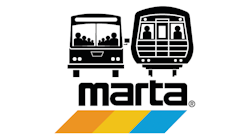MARTA Board Approves Historic Transit Expansion
The Metropolitan Atlanta Rapid Transit Authority’s Board of Directors made history by unanimously approving the More MARTA Atlanta program which represents the region’s largest transit investment in more than four decades.
“In Atlanta in the 21st century, transit is the lifeblood of opportunity,” said Board chairman Robert L. Ashe. “It is how millions of Atlantans access jobs, school, health care, and move throughout their communities. Today, we together took an important step in building the Atlanta we want for decades to come.”
The More MARTA Atlanta program will be partially funded by approximately $2.7 billion generated by a half-penny sales tax approved by city voters in 2016. Additional public and private funding will be sought to advance and expand key aspects of the program.
“Think of this as a major and transformational down payment on our future commitment to the city and to the region,” said MARTA General Manager & CEO Jeffrey Parker. “This is an important milestone, but it’s not the finish line.”
A two-year examination of technical data, performance measurements, and community surveys, led to a 17-project program that calls for 22 miles of light-rail transit (LRT), 14 miles of bus rapid transit (BRT), 26 miles of arterial rapid transit (ART), two new transit centers, additional fixed-route bus service, and upgrades to existing rail stations. Residents were most supportive of transit investments along the BeltLine, in the Clifton Corridor, and on Campbellton Road.
“As Atlanta’s population grows, so must our investment in equitable and accessible transportation options," said Mayor Keisha Lance Bottoms." With development plans spanning from Greenbriar in Southwest Atlanta to Emory University, today's MARTA vote helps move us closer towards becoming One Atlanta."
Next steps include developing costs and schedules associated with individual projects and beginning the process of securing additional funding. MARTA will also work to educate riders on various programs in the months ahead. More easily implemented projects, such as expanded bus service, have already begun.



